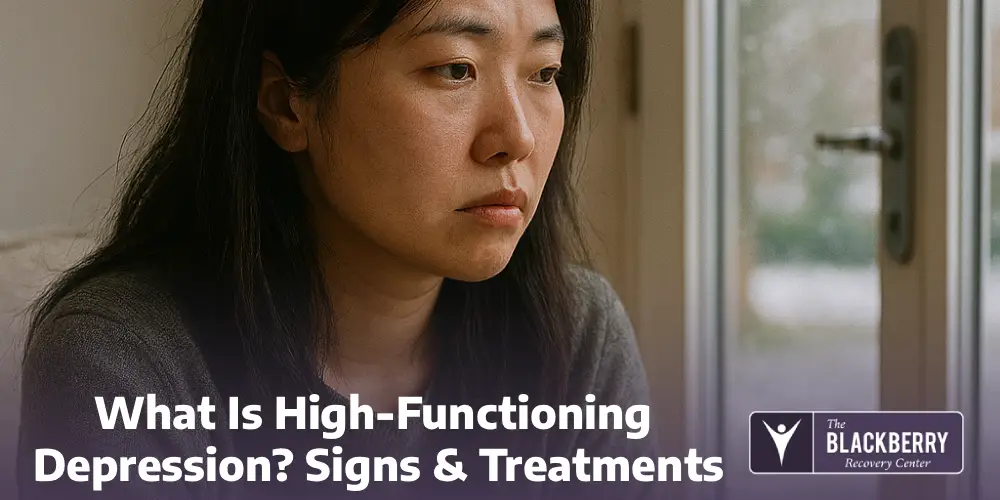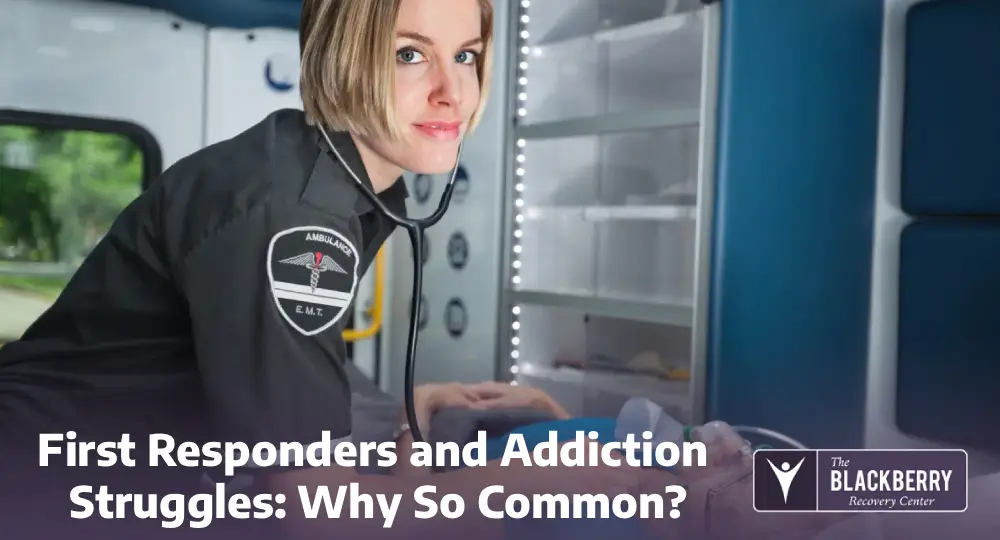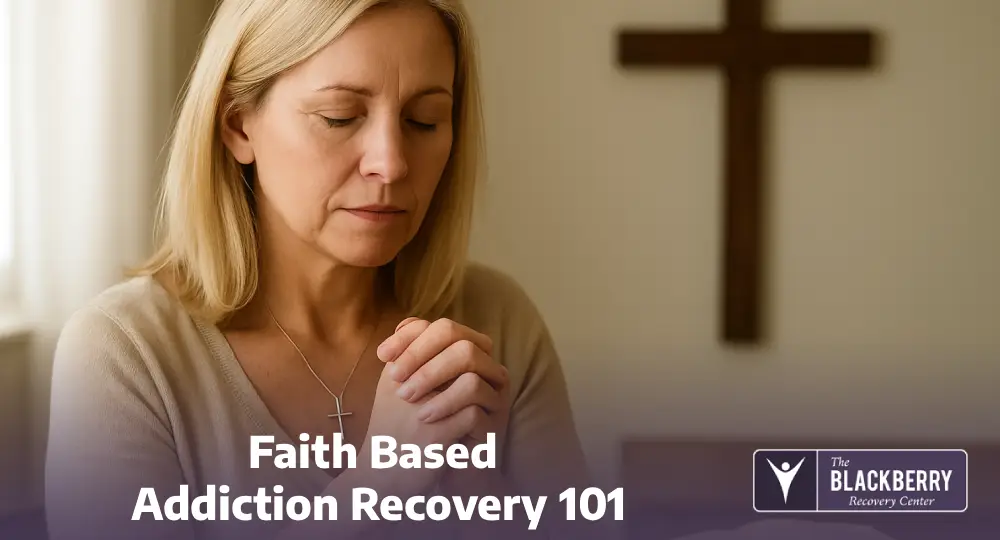When you think of depressive disorders, you might imagine someone who is lethargic and can barely get out of bed. And while low energy or fatigue are common signs of depression, high-functioning depression is a common phenomenon. And in cases like this, an outside observer may never realize that the individual lives with depression.
But what exactly is high functioning depression? And how is it similar and different to other types of depression?
What Is High-Functioning Depression?
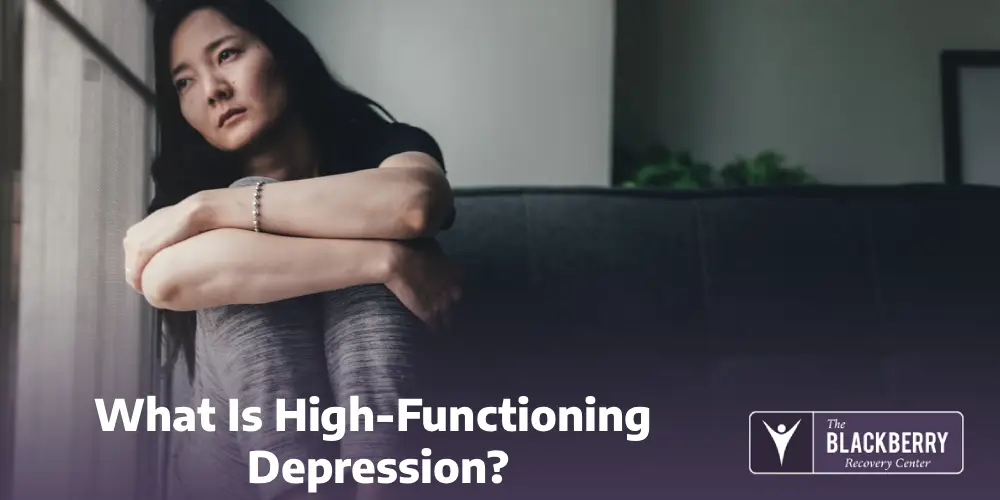
What Is High-Functioning Depression?
Before we can delve into high-functioning depression, we first have to look at the more typical symptoms of depression. Generally, depression occurs as one of several depressive disorders, like major depressive disorder or depressive psychosis. With these forms of depression, typical symptoms include:
- Lethargy
- Loss of interest in activities they used to enjoy
- Canceling plans with friends or family members
- Struggling at work or school
- Overeating or not eating enough food
- Mood swings
With high-functioning depression, also known as persistent depressive disorder (PDD), these symptoms may still occur in the individual. In fact, people with high-functioning depression often experience the full range of depression symptoms. However, their experiences with these symptoms may be less severe.
For example, a person with major depressive disorder may visibly struggle with completing their schoolwork because it feels impossible for them to do anything non-essential. However, an individual with PDD may, most of the time, be able to complete their schoolwork, even if they don’t especially want to work on anything.
Note, though, that high-functioning does not mean “has no signs of depression.” During certain periods, an individual with PDD may experience especially strong feelings of depression that look more like major depressive disorder. However, most of the time the person will simply feel a depressed mood that they can, with effort, overcome to make themselves function.
Unfortunately, this can lead to serious, co-occurring issues that require more than conventional mental health treatment.
Co-Occurring Disorders with PDD
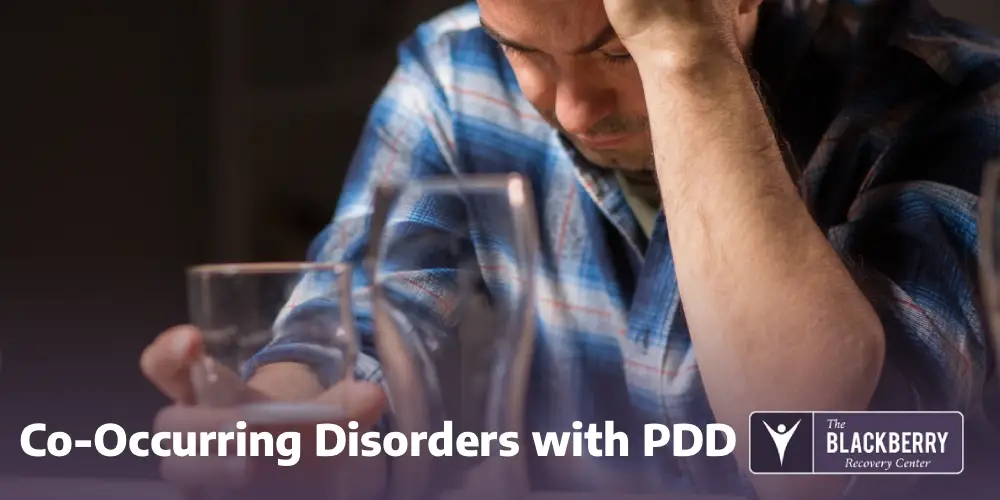
Co-Occurring Disorders with PDD
When caught early, high-functioning depression can be completely treated with mental health care. But because high-functioning depression goes untreated for so long, many individuals feel forced to self-medicate. This can lead to substance abuse, which in turn can cause addiction. And when combined with a mental illness, addiction becomes even more dangerous.
When an individual with a mental health condition self-medicates with drugs or alcohol, they can actually worsen the symptoms of their mental illness. Across the United States, countless people with depression use addictive substances to cope, then find themselves more depressed than ever once they develop an addiction. Sadly, this worsened depression leads them to lean even more heavily on drugs and alcohol. For a person with high-functioning depression, this could lead to more frequent depressive episodes and worsened symptoms of depression.
Thankfully, there is a way out of that cycle. With professional dual diagnosis programming, individuals can get help from addiction specialists and mental health professionals. This allows them to heal in a comprehensive, holistic way that addresses both high-functioning depression and co-occurring substance use disorders.
Treatment modalities can vary, but may include a combination of medications, individual therapies, and group therapy treatment options. You may also have the option to enroll in a spiritual recovery option, which would supplement your evidence-based dual diagnosis care with spiritually uplifting programs.
Video
What is depression? – Helen M. Farrell – TED TALK
Depression is the leading cause of disability in the world; in the United States, close to ten percent of adults struggle with the disease. But because it’s a mental illness, it can be a lot harder to understand than, say, high cholesterol. Helen M. Farrell examines the symptoms and treatments of depression, and gives some tips for how you might help a friend who is suffering.
News Audio
These habits can cut the risk of depression in half, a new study finds – NPR
If an ounce of prevention is worth a pound of cure, here’s a strategy that may help boost your mental health: Spend the next week observing your daily habits. You can jot them down in a journal to keep track.
How well are you sleeping? Are you eating foods that nourish you? Did you make time for a favorite hobby and exercise? Did you gather with friends or loved ones?
Your answers to these questions may help explain your mood — and your risk of depression too. In fact, a new study finds that people who maintain a broad range of healthy habits, from good sleep to physical activity to strong social connections, are significantly less likely to experience episodes of depression.
FAQ
- What is high-functioning depression?
High-functioning depression, often linked to persistent depressive disorder, describes someone who appears to manage daily life while still struggling with ongoing feelings of sadness and emptiness. - What are the signs of high-functioning depression?
Common signs include constant fatigue, low self-esteem, difficulty enjoying activities, irritability, changes in sleep or appetite, and a tendency to mask emotions around others. - How is high-functioning depression different from major depression?
Unlike major depression, where symptoms can be more obvious and disabling, high-functioning depression often allows individuals to maintain jobs, relationships, and responsibilities while silently battling internal struggles. - How can high-functioning depression be treated?
Treatment may include therapy (such as cognitive behavioral therapy), medication, lifestyle changes, and building strong support systems. Early recognition can significantly improve recovery. - Can someone overcome high-functioning depression?
Yes. With the right professional help, coping strategies, and consistent treatment, many people are able to manage symptoms and lead fulfilling, balanced lives.

